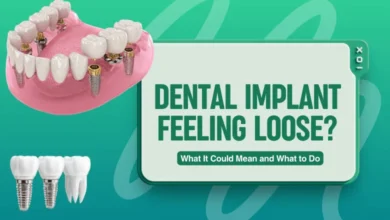5 Tips for Coping With Chronic Pain

Did you know that roughly 20.4% of the population experiences chronic pain? If you, or someone you know, experience chronic pain, you know how frustrating it can be.
Daily discomfort, from mild to excruciating, interferes with your life. And loved ones and doctors can only give so much sympathy. Coping with chronic pain requires some serious pain management techniques to get by.
If you want to learn about some of these techniques, you’re in the right place. In this article, we’ll go over some time-tested tips that have helped other individuals with chronic pain.
Give each one a try to see if they can help you better tolerate the discomfort.
1. Practice Meditation
Meditation and deep breathing techniques are known for their stress-relieving nature. It often does this by relieving a lot of the tension in our muscles at the end of a long day.
But did you know that it can also be an effective way of living with chronic pain? The scholarship around this is still young. But, initial findings are showing some promising results.
Just take this 2018 study. It found that when people engaged in meditation and mindfulness over long periods, it structurally altered their brains.
Specifically, it increased the cortical thickness in certain areas that are responsible for pain sensitivity.
In addition to this, meditation is believed to trigger our body’s opioid system. There are plenty of resources that can help you learn meditation online.
But, if you’re in serious pain, you might want to consider learning from an expert. They can guide you through the experience and help you learn more.
2. Exercise
Exercise is a great way to combat chronic pain. Why? Because when we work out, our bodies release natural endorphins. These are brain chemicals that essentially block the pain signals when they arise.
Exercise also strengthens your muscles which can help you prevent painful injuries in the future. Unfortunately, working out with chronic pain can often be excruciating.
If you aren’t able to do the type of workouts that you usually complete, consider trying something a little more low impact. Walking and water aerobics are great options for people coping with bad chronic pain.
3. Relieve Stress
It shouldn’t be surprising that stress, and other negative emotions like depression, anxiety, and anger, harm our pain levels. The more stress we feel, the more sensitive we are to chronic pain in our life.
Sadly, reducing stress levels can often be easier said than done. That being said, some well-proven methods can reduce your stress levels. We already went over meditation.
But, you can also try listening to calming music or any tune that improves your mood. You can also try searching out mental imagery relaxation programs.
This is a form of mental escape that’s done through spoken guided imagery. It’s a great way to get out of your head a little and focus on gentle, peaceful imagery.
You can also try doing a hobby or similar activity. Anything that distracts you a little from the pain is a good call.
YOU MIGHT ALSO LIKE:
4. Join a Support Group
Chronic pain can be undeniably isolating. The people in your life might understand that you are in pain. But, at the end of the day, their empathy can only go so far.
If they haven’t experienced it, then it can make it hard for even spouses and children to understand. This, in turn, can make you feel alone with your pain. But, you’re not.
There are plenty of support groups out there for people struggling with chronic pain. These groups are invaluable because they allow you to vent to a group of people that understand what you’re going through.
What’s more, they’ll likely also be able to give you valuable advice on how to cope with chronic pain. If you still have depression, you should also consider seeing a mental health professional.
They can teach you how to cope with your negative thoughts better.
5. Track Your Pain Levels
For a pain doctor to understand your pain, they need to know more about it. And the best way to give them a detailed picture is to keep a daily pain journal.
Each day, write down your pain level on a scale of one to ten. Include any relevant notes as well. Then, take this log to your doctor.
That way, they can use it either diagnose you or come up with a pain management treatment that’s more effective for whatever you’re going through.
Still, Hurting? Look for a Pain Management Doctor
At the end of the day, there’s only so much pain you can take from your chronic condition. If you find that the pain isn’t just interfering with the quality of your life but your ability to live it, you should see a professional.
Some doctors are specifically trained in pain management that can help you. When should you see one? Schedule an appointment if you experience any of the following:
- Debilitating or unbearable pain
- Difficulty breathing
- Nausea
- Dizziness
- Pain that has been going on for a long time
Just make sure that you schedule an appointment with the right type of pain management doctor. You want to make sure that they’re qualified before getting advice from them.
Enjoy Learning About Coping With Chronic Pain? Keep Reading
We hope this article helped you learn some tips for coping with chronic pain. The worst thing about chronic pain is that it’s unique to the person experiencing it.
Because of this, it requires a unique set of techniques and management to deal with. So, keep searching until you find the right combination that works for you.
Do you not want this article to end? We don’t blame you. Luckily, there are hundreds more that you can check out by continuing to explore our site. So, get started!






